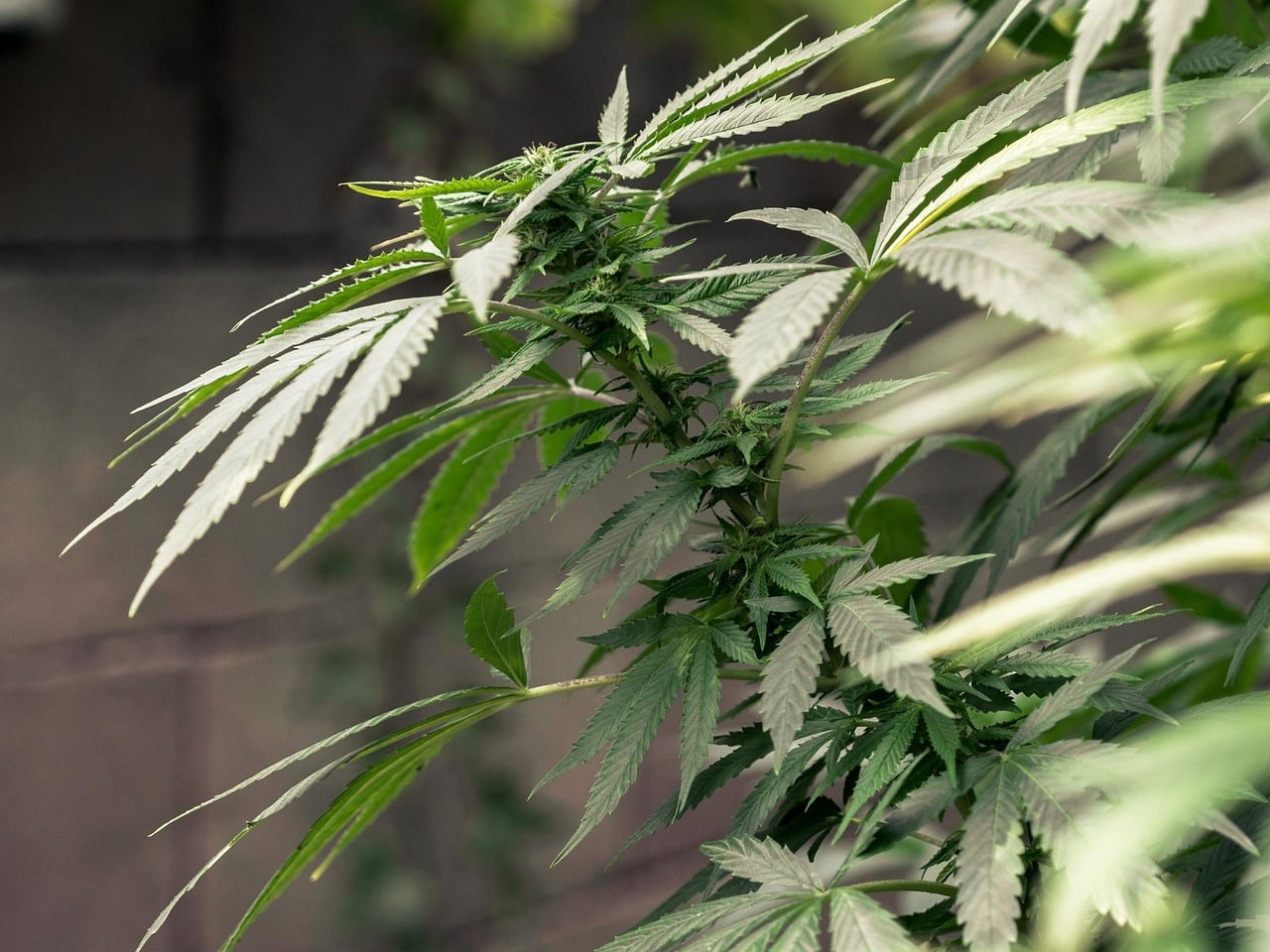Should I Stop Smoking Weed (Marijuana Use and Your Health)
Are you pondering over the question, “should I stop smoking weed?” If so, you’re not alone. Many individuals question their marijuana use, especially in a society with evolving views on cannabis. Whether you’re considering quitting or reducing your intake, understanding the impact of weed on your health is crucial. This guide aims to explore the essentials of marijuana use, its effects, and strategies to approach quitting weed effectively.

What Happens When You Smoke Weed
When you smoke weed, THC (tetrahydrocannabinol), the main psychoactive component of cannabis, quickly enters your bloodstream via the lungs. This rapid absorption leads to immediate effects but also raises several health concerns.
Physical Symptoms
Smoking weed can lead to a range of physical symptoms that are both immediate and long-term. These include:
- Increased heart rate, which can be a concern for those with cardiovascular issues.
- Dry mouth, often referred to as “cottonmouth.”
- Reddening of the eyes due to increased blood flow.
- Long-term respiratory problems similar to those experienced by tobacco smokers, such as chronic bronchitis and lung irritation.
Psychological Symptoms & Mental Health Disorders
The psychological impact of marijuana is varied and can be influenced by the amount used, the user’s history, and the strain of cannabis. Users may experience:
- Immediate effects like euphoria, altered perception, and relaxation.
- Long-term psychological risks, include heightened anxiety, depression, and, in some cases, the exacerbation or onset of psychotic disorders, particularly in heavy or long-term users.
Marijuana Addiction
Marijuana addiction is a real concern, particularly for regular or heavy users. Signs of addiction include (1):
- Increased tolerance requires more marijuana to achieve the same effects.
- Withdrawal symptoms, such as irritability, mood swings, and sleep disturbances, when not using.
- Persistent use despite being aware of the negative consequences on personal, social, or occupational life.
Reasons People Smoke Weed
The reasons people, especially young individuals, choose to smoke weed are varied and often complex. Influences range from social pressures, such as fitting into peer groups, to using marijuana as a coping mechanism for mental health issues like stress and anxiety. The Canadian Cannabis Survey 2022 highlights stress (59%), anxiety (55%), boredom (51%), loneliness (33%), and lack of a regular schedule (31%) as the top reasons for increased cannabis use recently, reflecting the profound impact of the current social and pandemic-related environment on marijuana consumption (2) (3).
- H3: Alleviates social pressure
- H3: Temporarily masks physical symptoms of other issues (such as pain or discomfort)
- H3: Satisfies a marijuana dependency or withdrawal symptoms
The Physical Impact of Marijuana on Health
Lung Health: Increased Risk of Lung Cancer Due to Similarity with Cigarette Smoke
- Marijuana smoke contains carcinogens similar to those found in tobacco smoke, including harmful substances like benzopyrene and benzanthracene. These compounds are known to be harmful to the lungs and cardiovascular system.
- While direct links between marijuana smoking and lung cancer remain under study, concerns are heightened due to the deeper inhalation and longer retention of marijuana smoke compared to cigarette smoke. This could potentially lead to a higher deposition of tar in the lungs, increasing the risk of lung cancer (4).
Respiratory Issues: Chronic Cough, Bronchitis, and Lung Infections
- Regular marijuana smoking irritates the throat and lungs, leading to conditions like chronic cough and bronchitis. The presence of volatile chemicals and tar in marijuana smoke is similar to that in tobacco smoke, raising serious concerns about lung health.
- While some studies suggest an increased risk of respiratory infections and lung inflammation among marijuana smokers, well-designed population studies have not found a definitive link to lung cancer. The impact of marijuana smoking on respiratory health remains a critical area for ongoing research and public health awareness (5).
Immune System Suppression
- THC, the active component in marijuana, may have immune-suppressing effects. This is particularly concerning for individuals with compromised immune systems, as it could increase susceptibility to lung infections.
- The extent to which marijuana use affects the immune system is still being explored. Current research suggests potential risks, but the full implications and mechanisms by which marijuana affects immune health require further investigation.
The Mental and Neurological Effects of Marijuana on Health
Smoking marijuana can have various negative mental and neurological effects, which can vary in severity and impact depending on individual factors like age, frequency of use, and personal health history.
Memory Impairment and Cognitive Effects
Marijuana use, especially when THC interacts with the brain, can lead to memory impairment and cognitive challenges. This includes difficulties in learning, processing, and retaining new information, impacting short-term memory significantly.
Prolonged use of marijuana from a young age might result in more persistent cognitive deficits. However, some studies suggest that abstaining from marijuana can lead to partial or full recovery of cognitive functions (6).
Mood Swings, Anxiety Disorders, and Depression
Marijuana use can have varying effects on mood, potentially exacerbating conditions like anxiety and depression. While it may offer temporary relief for some, it can intensify anxiety or depressive symptoms for others, particularly with high doses or frequent usage.
The interplay between marijuana use and mental health disorders like anxiety and depression is intricate, necessitating caution for those with pre-existing mental health concerns.
Risk for Psychosis Increases with Chronic Marijuana Use
Long-term, heavy marijuana use is associated with an increased risk of psychosis, particularly in those genetically predisposed to mental health disorders such as schizophrenia. THC can provoke psychotic symptoms and worsen existing mental health conditions.
Research indicates a higher risk and earlier onset of schizophrenia in individuals who use marijuana from an early age or use high-potency strains. This underscores the importance of understanding the potential mental health risks associated with marijuana use (7).

Marijuana Use Disorder
Marijuana use disorder is characterized by dependence on marijuana, where users experience difficulty in controlling their consumption despite being aware of the adverse effects on their health and life.
Chronic Marijuana Use Tendencies
This disorder is often marked by an increased tolerance to marijuana, leading to the consumption of larger amounts over time. Users might prioritize marijuana use over other activities and obligations, showing a persistent desire or unsuccessful efforts to cut down or control use.
Display of Withdrawal Symptoms When Not Smoking Marijuana
Individuals with marijuana use disorder may experience withdrawal symptoms when they attempt to quit or reduce use. These symptoms can include irritability, sleep difficulties, decreased appetite, restlessness, and various forms of physical discomfort (8).
Development of New Mental Health Issues
Prolonged and heavy marijuana use can lead to the development of new or worsening mental health problems. This includes heightened anxiety, mood disorders, and, in severe cases, psychosis, especially in those with a pre-existing vulnerability to these conditions.
The risk of developing marijuana use disorder is influenced by factors such as the dose consumed, frequency of use, age of initiation, and the presence of underlying mental health issues.
Benefits of Quitting Marijuana
Immediate Physical and Mental Benefits
Quitting marijuana brings about notable improvements in memory and cognitive functions, enhancing clarity and the ability to process and retain information. Users often experience an increase in motivation and focus, counteracting the mental fog commonly associated with chronic use. Additionally, respiratory health significantly benefits, with a decrease in problems like chronic cough and bronchitis typically seen in long-term marijuana smokers.
Long-term Benefits of Quitting Marijuana
Over time, individuals who stop using marijuana often see improvements in their relationships, work performance, and financial stability. This change can lead to a more stable and fulfilling life. The risk of developing mental health disorders, such as anxiety, depression, or psychosis, is also reduced, contributing to enhanced overall well-being and life satisfaction (9).

Strategies to Quit Smoking Weed
Quitting weed on your own or with your friends/ family
Embarking on the journey to quit weed can be done independently or with the support of friends and family. Understanding the withdrawal process is essential, and decisions need to be made regarding tapering off the usage or quitting cold turkey. For heavy users, the cold turkey approach may present more challenges. It’s important to set clear goals, modify your environment to avoid triggers and establish a strong support network.
Professional Help for Quitting Weed
Seeking professional help can significantly enhance the success rate of quitting marijuana. Expert guidance and structured treatment programs offer a supportive environment conducive to recovery. These treatments can vary, ranging from inpatient to outpatient programs, each tailored to meet the unique challenges and needs of the individual (10).
Cognitive-behavioral therapy (CBT)
Cognitive-behavioural Therapy (CBT) is a highly effective treatment method for marijuana addiction. It helps individuals recognize and alter harmful thought patterns and behaviours associated with their substance use. CBT sessions typically involve working with a therapist to identify triggers and develop coping strategies to deal with cravings and prevent relapse.
This therapy also focuses on addressing co-occurring issues such as anxiety or depression, which are often intertwined with substance use disorders. Over time, CBT can lead to significant changes in thinking and behaviour, contributing to a sustained recovery from marijuana addiction (11).
Contingency management (CM)
Contingency Management (CM) is an approach that uses positive reinforcement to encourage sobriety. In CM, individuals receive rewards for evidence of positive behaviour changes, such as clean drug tests. This method has been shown to be effective in increasing rates of abstinence and treatment engagement.
The rewards in CM can vary from small incentives to larger, more significant rewards as milestones in recovery are reached. This method helps to build motivation and can be particularly effective in the early stages of recovery when the temptation to relapse is strong (12).
Motivational enhancement therapy (MET)
Motivational Enhancement Therapy (MET) is a client-centered approach designed to evoke rapid and internally motivated change. This therapy does not try to guide the client through recovery but instead helps them find their motivation to commit to change. MET involves an assessment phase followed by two to four treatment sessions.
The therapist helps the client to understand the impact of their substance use and to visualize a better future. MET can be particularly effective for those who are ambivalent about quitting or struggling to recognize the negative impacts of their marijuana use (13).
Rehabilitation centers
Rehabilitation centers provide comprehensive treatment for marijuana addiction, offering a range of services tailored to individual needs. These centers often combine medical care, counselling, and various therapies to address all aspects of addiction. The goal is to help individuals understand the root causes of their addiction, develop coping mechanisms, and build a foundation for long-term recovery.
Rehab centers can vary in their approach, with some offering holistic treatments, others focusing on medical aspects, and yet others emphasizing psychological support. The choice of rehab center should align with an individual’s specific needs and preferences for the best chance of successful recovery (14).
What to Expect When Quitting Marijuana
Quitting marijuana, especially cold turkey, can lead to a range of withdrawal symptoms. The severity and nature of these symptoms often depend on the frequency and intensity of prior marijuana use. Individuals who have used marijuana heavily or for a long time may experience more pronounced withdrawal effects.
Psychological Symptoms: Mood Swings, Irritability
The phenomenon of cannabis withdrawal syndrome (CWS) is prevalent among regular cannabis users. Research indicates that individuals who habitually use cannabis may experience psychological withdrawal symptoms such as mood swings and irritability when they stop using the substance. These findings underscore the importance of clinicians being aware of the prevalence and nature of CWS. This awareness is crucial for effectively counselling patients and providing necessary support to individuals who are in the process of reducing or ceasing their cannabis use (15).
Physical Symptoms: Stomach Pain, Chills, Sweating, Headaches
Physical symptoms of marijuana withdrawal can include stomach pain, chills, sweating, and headaches. These symptoms occur as the body detoxifies, and although uncomfortable, they are typically not life-threatening. Proper hydration, rest, and over-the-counter pain relievers can help alleviate these symptoms.
How Long Withdrawal Symptoms Last
The onset of cannabis withdrawal symptoms usually occurs within 1-2 days of stopping use, peaking around the second to sixth day. For those who have used cannabis heavily, symptoms can linger for several weeks. The withdrawal experience often includes emotional states like anxiety and irritability, sleep disturbances, mood changes, and reduced appetite. Physical discomforts, though less frequent, can include headaches, sweating, and stomach pain. While no medications are specifically designated for cannabis withdrawal, certain therapies, primarily supportive counselling and psychoeducation, are employed as first-line strategies. In some cases, medications may be used to alleviate specific acute symptoms. For patients dealing with severe mental health issues or using multiple substances, inpatient care is sometimes necessary to safely manage withdrawal (16).
Resources to Help You Quit Smoking Marijuana
Quitting marijuana can be a challenging journey, but numerous resources are available to assist those looking to make this change. It’s important to start by weighing the pros and cons of marijuana use, understanding both its impacts and the benefits of quitting. This self-evaluation can be a powerful motivator for change.
Reducing marijuana use can have significant benefits, and it’s often a more manageable goal than complete cessation. Even small steps towards reduction can lead to meaningful changes in health and well-being.
For personalized support and guidance, contacting a rehab center like 1000 Islands Rehab can be a crucial step. Their expertise in addiction treatment can provide individuals with the tools and support needed to reduce or quit marijuana use. They offer various services tailored to individual needs, ensuring that each person receives the care and attention required for a successful journey towards better health.
Information on this page is for informational purposes only, and does not replace personalized medical advice. You should never make any decisions about your health without consulting a healthcare professional, especially when related to substance use or mental health. To speak to a qualified member of our team for personalized advice, you can contact us here.
Sources
- 1000 Islands Addiction Treatment Centre – How to Recognize Marijuana Addiction
- 1000 Islands Addiction Treatment Centre – Top Reasons Young People Use Marijuana
- Government of Canada – Canadian Cannabis Survey 2022 Summary
- Centers for Disease Control and Prevention – Cancer
- National Institute on Drug Abuse – What are marijuana’s effects on lung health?
- World Health Organization – Cannabis and Mental Health (p. 33)
- Government of Canada – Mental Health and Cannabis
- Canadian Centre on Substance Use and Addiction – Knowing Your Limits with Cannabis
- 1000 Islands Addiction Treatment Centre – 5 Ways You Can Benefit from Quitting Weed
- 1000 Islands Addiction Treatment Centre – Available Treatments for Marijuana Use Disorders
- Centre for Addiction and Mental Health – Cognitive Behavioural Therapy
- National Institute on Drug Abuse – Contingency management: what it is and why psychiatrists should want to use it
- NIAAA – Motivational Enhancement Therapy Manual (p. 21)
- 1000 Islands Addiction Treatment Centre – How to Find a Marijuana Addiction Rehab Centre
- National Library of Medicine – Prevalence of Cannabis Withdrawal Symptoms Among People With Regular or Dependent Use of Cannabinoids
- National Library of Medicine – Clinical management of cannabis withdrawal



